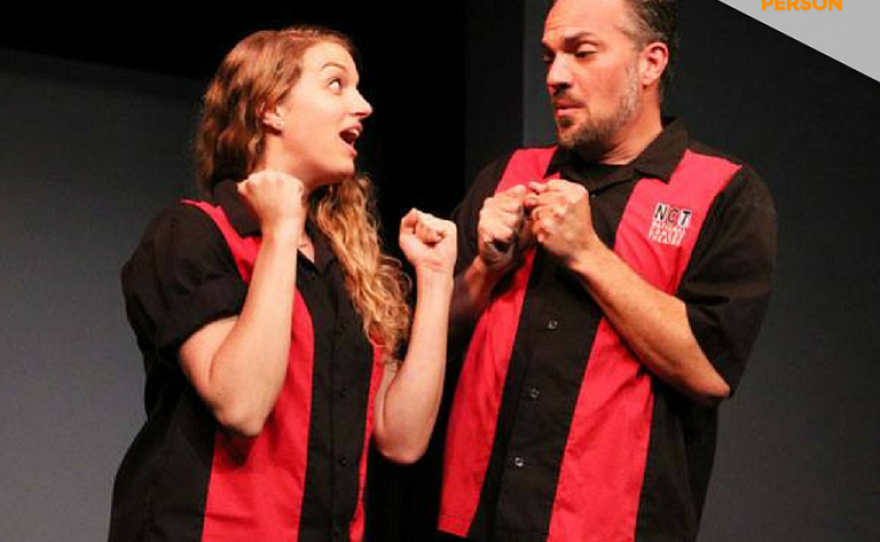The Connection Between Improv Comedy And Therapy
>>> Our series 1st person gives you the stories of San Diego and stole the nerve own voices. Zach Kearns works at the San Diego Center for children. The day he helps kids in the foster care system. Any of them are working to overcome trauma, abuse, addiction. After hours, Stone finds release from a stressful job performing on a local stage. >> My name is Zach and I will be a referee tonight originated never been to a comedy club before. Speak in a big part of improv and part of why I find it very useful and relevant to life is that you are going out there with no idea what's going to happen. You are just going to dive in, take a risk, do your best. Sometimes that is astonishingly successful and sometimes he totally failed. Sometimes the most fun moments in a show are seeing somebody just throw themselves into something and fall fully on their face and to back up in good spirits and tried all over again. That is a part of the thrill and fun of improv and what makes it relevant to life. My after hours job a few nights a week is I am the associate director of the national comedy theater where we do improvisational comedy. It started there in 2003. What we do there is I teach and perform improv comedy shows. Our Friday and Saturday main format mainstage show is set up like a sporting event. >> This is competitive because you are going to be watching two teams, the San Diego free agents in the Coronado -- in right. >> When I am the host, I am the referee. There are two teams that will perform. The audience gives suggestions and also their applause vote on which of two scenes they thought was better or which team they thought was more convincing in a particular scorn you go back and forth to the night until one of the teams emerges victorious. One of my greatest enjoyments is when we are able to do singing scenes and incorporating the improvisation of creating music on top of the improvisation of doing comedy and creating a scene is a lot of fun. There is something about connecting your voices with somebody else. It is not just me making up the scene, but I have a partner and we are riffing off of each other and harmonizing off the spot is really an incredible moment especially when it goes really well, it is an incredible moment that reaches down to your soul and the level of I feel connected to this person. Everybody in this room we are like creating this right now. Improvisation and therapy have always been pretty closely linked for me. I think that improv spirit of how much practice improvisation is in connecting with other people is also the main thing we all need therapeutically to grow. The key to most people situations, most people struggles is being able to feel comfortable sharing who you really are and having supported relationships in your life's with other people. The rules of improvisation carryover to the spirit of we are coming together. If you cannot get yourself into that, let's go, let's try, let's look at the strength, let's build on what is good or you never get anywhere. That is the main thing we do with our families is they are struggling. They have a lot of trauma. They've had a lot of trouble in their lives. They have not been treated very well by the system in one way or another. It is really easy to look at all of the problems and it seems hopeless sometimes. But look at all that you have done. Look at all that you have survived and their resiliency. Look at someone story that they see as a big while pointing out and hearing them for that, it is another huge skill that improv is listing. I have to be very tuned into people around you. Hearing a person story and picking out of it while that is an amazing thing. How did she get to do that. That's incredible. You here you are and you're in your home and you are caring for your kids and they are still here. Tell me about the strengths that got you through that. Those are very tied in to improvisational.


